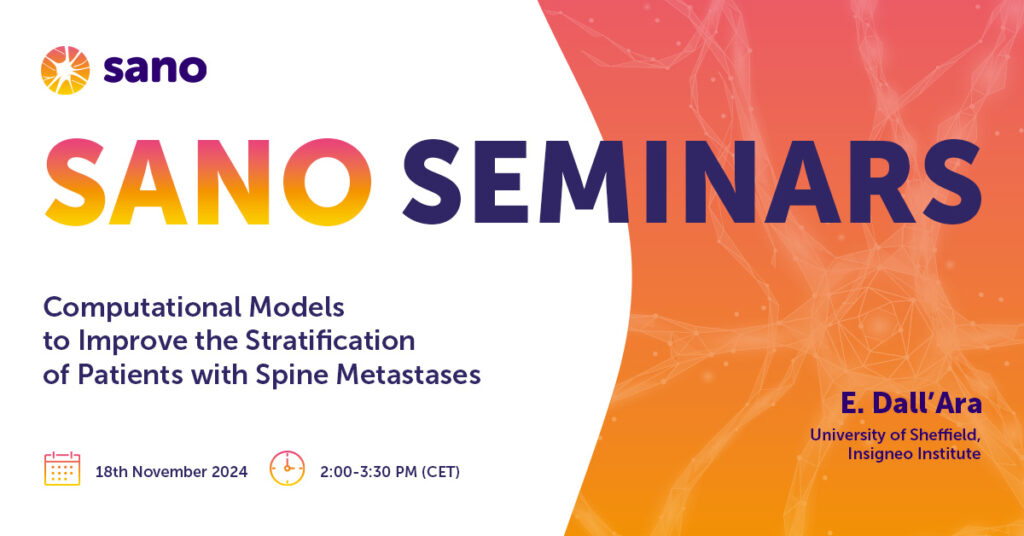147. Computational Models to Improve the Stratification of Patients with Spine Metastases
E. Dall’Ara - University of Sheffield, Insigneo Institute
Abstract:
The spine is the most common anatomical site for the localization of bone metastases from different types of primary tumours (30-70% of patients with cancer, estimated to be ~2.7M in Europe). Fractures occur in 30% of metastatic spines. Currently scoring systems such as the Spine Instability Neoplastic Score (SINS) are used by clinicians to estimate the risk of fracture in these patients and decide who needs treatment, usually an invasive surgery. Nevertheless, these scores are not specific and sensitive enough. CT-based Subject Specific Finite Element (SSFE) models have been used to evaluate the effect of skeletal diseases and related treatments in the spine.
In this seminar I will:
-) introduce a new experimental and imaging pipeline to characterize the failure modes of vertebrae with metastatic lesions;
-) present a pipeline to create SSFE models of vertebrae with metastatic lesions and adjacent radiographically healthy control vertebrae from CT images of patients with spine metastases;
-) introduce the METASTRA project (https://www.metastraproject.eu/), which is funded by the EU and aims at developing the first decision support tool based on computational models to stratify patients with spine metastases that are at high risk of fracture.
About the author:
Prof. Dall’Ara (https://www.sheffield.ac.uk/smph/people/clinical-medicine/enrico-dallara) is Professor of Musculoskeletal Biomechanics at the University of Sheffield. He is the Director of the Skelet.Al laboratories, the Research Director of the Insigneo Computational Modelling in Medicine research theme, and the President of the European Society of Biomechanics. His research focuses on better understanding the properties of musculoskeletal tissues across the space and time scales, by using imaging, experimental and computational methods. He has received funding from EPSRC, NC3Rs, BBSRC, FNRS/FWO, and the European Commission including the recent METASTRA project. In 2024 he has been selected for an ERC consolidator award that has been funded by the EPSRC through the EU Guarantee fund with the title: Virtual Mouse and Human Twins for optimising Treatments for Osteoporosis (VMHTsOP).


